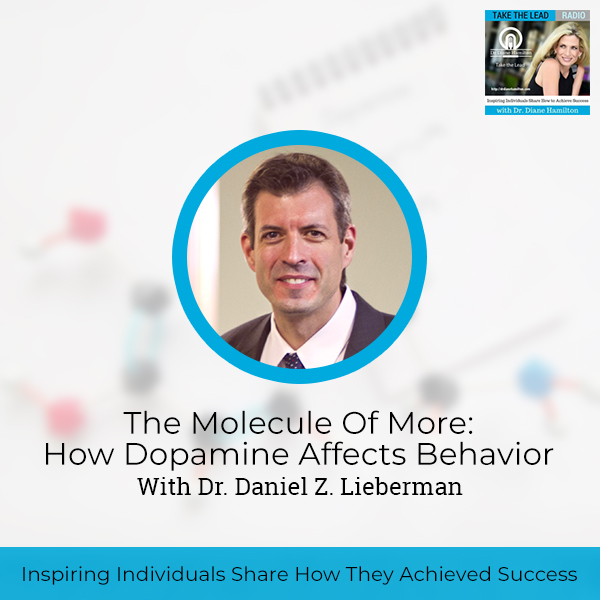Activating Your Inner Core And The Five Core Energies To Success With Hitendra Wadhwa

Activating Your Inner Core And The Five Core Energies To Success With Hitendra Wadhwa
Beauty comes from within—a phrase we often hear to motivate us when insecurities attack. But there’s more to it than what we often think. In this episode, Hitendra Wadhwa, educator, speaker, and founder of the Mentora Institute, takes us deeper within. He talks about the five core energies and how activating your Inner Core can lead to a life with Purpose, Wisdom, Growth, Love, and Self-Realization. So tune in and get insights on how you can tap your inner strengths and reach your full potential.

The Molecule Of More: How Dopamine Affects Behavior With Dr. Daniel Z. Lieberman
So many things impact our everyday decisions, and behavioral scientists take it upon themselves to have a better understanding of this. Today, Diane Hamilton talks with Dr. Daniel Z. Lieberman, a professor and vice-chair for clinical affairs at the Department of Psychiatry and Behavioral Sciences at George Washington University. With his book, The Molecule of More, he puts the focus on dopamine and how it affects us in terms of love, sex, creativity, and everything else – determining the fate of the human race. He also shares with us what he has learned about it in relation to behavioral disorders and illnesses. Putting out more enlightening information, Dr. Lieberman lets us in on understanding how dopamine weighs in on the successes we have in life and the ways to feel better and be better as humans. Continue reading “The Molecule Of More: How Dopamine Affects Behavior With Dr. Daniel Z. Lieberman”
Keirsey’s Results Show Wealthy Extroverts Are Happiest Americans
In Dr. Grupta’s blog, he wrote about: Who are the happiest Americans? According to a new study, they may be extroverted, earning more than $75,000 a year, healthy, and engaged. The analysis was conducted by Keirsey Research, an organization that looks at how personality relates to a person’s preferences in consumer choices, political opinion, and a variety of other factors. Click here for the rest of Grupta’s article.
In our book about personalities, my daughter, Toni Rothpletz, and I discuss Keirsey’s temperament research. If you are interested in reading more about the results of Keirsey’s study that showed “Wealthy Extroverts are the Happiest Americans” click here. Some highlights from the results of this study showed:
- Personality. 63 percent of Americans rate themselves as very or somewhat happy. Extroverts (74 percent), however, are much happier than introverts (56 percent).
- Wealth. In general, the higher the household income, the happier the individual. 72 percent of those with an annual household income of $75,000 or more are very or somewhat happy, compared to 59 percent of those with an annual household income of $50,000 or less.
- Love. Not surprisingly, being engaged promotes above average happiness (71 percent very or somewhat happy). Those who are separated but not divorced are least happy when it comes to love (48 percent).
- Age. Americans get progressively happier as they get older, with one exception. Happiness takes a dip between the ages of 35-44 (58 percent are very or somewhat happy), when parental and career pressures are typically at their peak.
- Family. “Empty nesters” are most happy (73 percent very or somewhat happy), while those who are divorced and sharing custody are least happy (56 percent). Individuals who do not have children cite average happiness (62 percent).
- Education. In most cases, more education means more happiness. There was no difference, however, between the happiness of those with a bachelor’s degree and those with a graduate degree (68 percent very or somewhat happy).
- Politics. Democrats and Republicans are equally happy (roughly 70 percent very or somewhat happy), while Green Party affiliates are the least happy (52 percent).